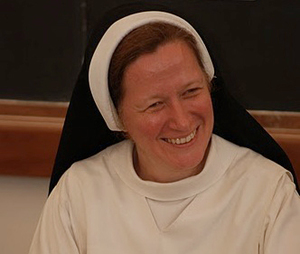Lecture ties Catholic values and investments
Published: February 16, 2015 / Author: Clare Kossler

Sr. Helen Alford, economics professor at the Pontifical University of St. Thomas Aquinas in Rome, discussed how Catholic Social Tradition (CST) and impact investing mutually benefit one another as a result of interdisciplinary dialogue during the latest installment of the “Ten Years Hence” lecture series Friday in the Mendoza College of Business.
“Impact investing has something to offer the Catholic Social Tradition, and the Catholic Social Tradition has something to offer impact investing,” she said.
Impact investing, a form of investing which integrates environmental and social objectives with the pursuit of profit, can assist CST in being “reliable, concrete and relevant,” Alford said. Conversely, CST prompts other disciplines – particularly impact investing – to embrace notions of human dignity and the common good, which Alford said are informed by Catholic teaching.
Specifically, impact investing helps explore sustainable business methods for attaining philanthropic goals, Alford said. Finding more sustainable means of philanthropy is so important, she said, because traditional charity cannot currently meet the needs of the impoverished.
“Nobody’s saying impact investing should get rid of charity,” she said. “There’s always going to be a role for charity.”
“Impact investing can challenge the Church to think about the potentially crucial role of profit-making business, and hence of private investment, in confronting poverty,” she said. “I’m not sure that the Christian tradition has really taken that seriously enough.”
Alford said impact investing offers the Church the opportunity to occupy a more engaged and prominent position in society.
“We could really handle very well this dialogue between Catholic Social Thought and impact investing,” she said. “The Church could grow really to a much more leading position, could be part of the innovators in society.”
Alford said impact investing can in turn benefit from CST because of the tradition’s emphasis on individual human dignity and solidarity – an emphasis which would help impact investing maintain its integrity even as businesses expand and begin to lose sight of the importance of individual relationships.
“If we have a really strong combination of solidarity and subsidiarity in a serious way – these ideas are there for the taking in the Catholic Social Tradition – they help create an approach to scaling that keeps the focus on the poor customer and the importance of relationships for that person,” she said.
The potential for CST and impact investing to learn from one another other is too great to ignore, Alford said. Because of their size and influence, Catholic universities such as Notre Dame have an important role to play in encouraging the conversation between the two disciplines, she said.
“Notre Dame and the Mendoza College are really trying to live up to the very exciting and important mission that Catholic universities have in societies today – offering very useful and new vistas for people in this dialogue between the Catholic Social Tradition and all the forms and branches of knowledge that we can think of,” she said.
Related Stories




